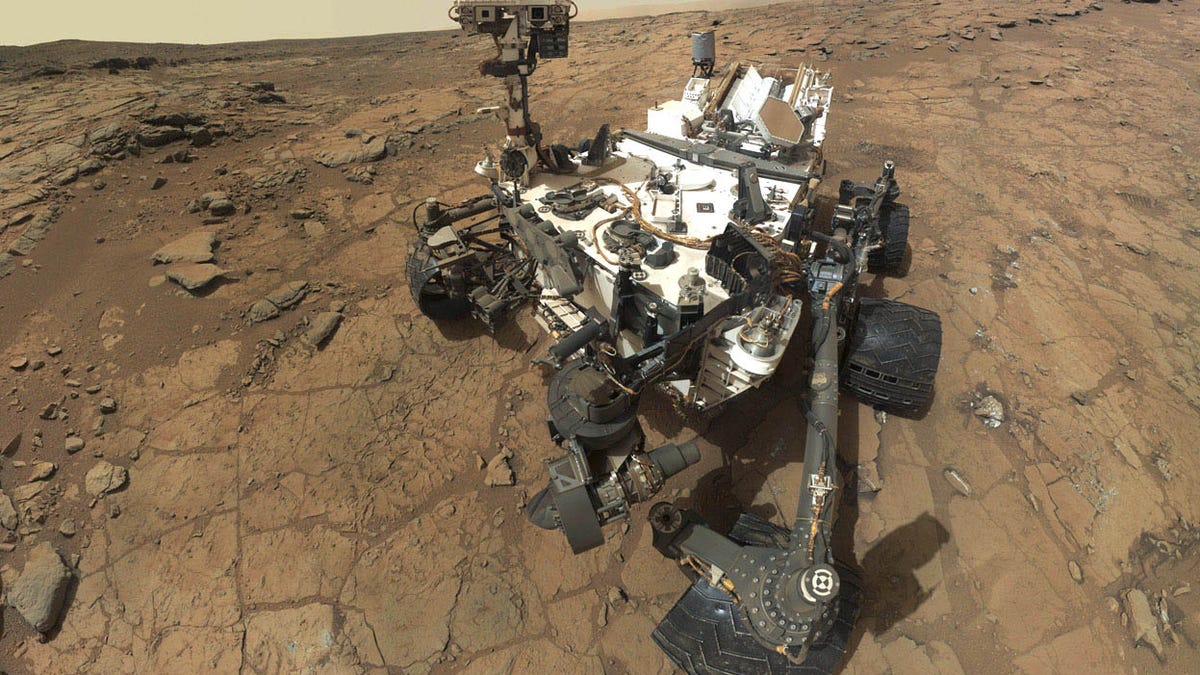Science finally confirms that Mars is farting
We've been searching for signs of methane on Mars for decades now without anything definitive. That may have changed.

Curiosity on Mars
For the first time, scientists may have confirmed that there's methane on Mars.
While we think of methane as the stinky gas that cows burp en masse, the presence of any molecule so frequently used and expelled by life on Earth may boost the chances that a world is habitable or perhaps even inhabited.
A paper published in Nature Geoscience on Monday lays out the detection of methane near Gale Crater on the surface of Mars on June 16, 2013, using instruments on the Mars Express orbiter. What's important about that date is that NASA's Curiosity rover detected methane at Gale Crater a day earlier.
"This finding provides independent confirmation of debated measurements obtained by the Curiosity rover one day earlier," reads a release.
Curiosity's previous attempts to sniff out the gas before then came up empty, and some suggested that when the rover finally did detect methane it might have been smelling its own flatulence -- the robot carries a tiny amount of methane around inside it. But the rover's operators insisted that there was no way the detection could have come from the robot itself.
Methane has been detected in the Martian atmosphere multiple times and on the surface going all the way back to when the Viking landers sampled Martian soil in the 1970s. Viking's "Labeled Release" experiment appeared to have found not just methane, but signs of microbial life. Follow-up samples were inconclusive, and the claim that signs of life were discovered on Mars decades ago are now widely dismissed, although the principal investigator on the Viking experiment and others still contend they found evidence of life.
Because it's so difficult to confirm a single methane detection on Mars using a second, independent instrument, there's still some debate over whether there really is any of the rotten-smelling biosignature on the red planet.
"The results presented in this work not only corroborate previous detections by Curiosity but, in a broader perspective, might change our view of methane occurrence on Mars," the paper says. "Our data suggest that the presence of methane on Mars might be characterized by small, short emissions and transient events."
The study does not address where, exactly, methane on Mars might be coming from, but it sure seems to be accusing the planet of farting.
More seriously, the new research could allow scientists to zero in on potential sources of methane emissions on the planet's surface. That, in turn, could lead to discoveries of places that once supported life, could support it or maybe even still support it.
And if scientists do find methane sources on Mars that are tied to signs of life, here's hoping they aren't of the silent but deadly variety.

